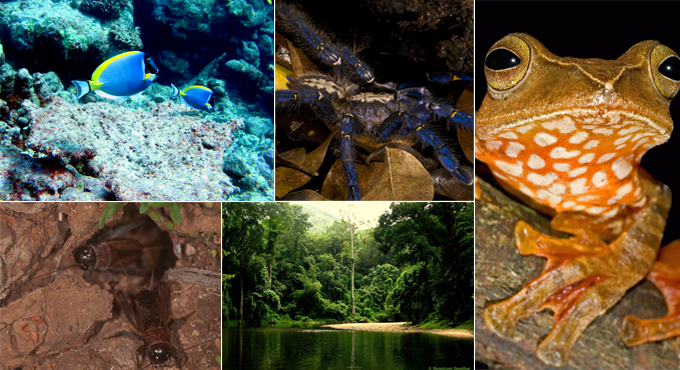Ecology - Study of Ecosystems
What is Ecology?
 Photo courtesy of Indian Institute of ScienceOpens in new window
Photo courtesy of Indian Institute of ScienceOpens in new window
|
Ecology is the study of the distribution and abundance of organisms, the interaction between organisms and their environment, and structure and function of ecosystems.
Ecology helps us to understand how the world works. It provides useful evidence on the interdependence between people and the natural world and, as well the consequences of human activity on the environment.
The discipline of ecology emerged from the natural sciences in the late 19th century. Ecology is not synonymous with environment, environmentalism, or environmental science.
Ecology is closely related to the disciplines of physiology, evolution, genetics and behavior. It has a tremendous scope, but with certain limitation.
It does not take into account the formation of cells (A fundamental unit of organisms or life) and the Protoplasm, but deals with the behavior of the organisms in individual, population and community level. Thus, by now, it has expanded its frontiers from that of simple environmental biology to the stage of exobiology.
- Ecology includes the study of plant and animal populations, plant and animal communities and ecosystem.
- Ecosystems describe the web or network of relations among organisms at different scales of organization.
Since ecology refers to any form of biodiversityOpens in new window, ecologists research everything from tiny bacteria’s role in nutrient recycling to the effects of tropical rain forest on the Earth’s atmosphere.
There are many practical applications of ecology in Conservation Biology, wetland management, natural resource management (agriculture, forestry, and fisheries), city planning (urban Ecology), community health, economics, basic & applied science and it provides a conceptual framework for understanding and researching human social interaction.
Conservation biology is often referred to as a “Discipline with a deadline”. And which is concerned with phenomena that affect the maintenance, loss, and restoration of biodiversity and the science of sustaining evolutionary processes that engender species, and ecosystem diversity.
Conservation biologists research and educate on the trends and process of biodiversity loss, species extinction, and the negative effect these are having on our capabilities to sustain the well-being of human society.
Species are broadly categorized as Autotroph (or primary producers), Heterotroph or consumers, and Detritroves or decomposers.
- Autotrophy are organisms that produce their own food (production is greater than respiration) by photosynthesis or chemosynthesis.
- Heterotrophy are organisms that must feed on others for nourishment and energy (respiration exceeds production).
Heterotrophs can be further sub-divided into different functional groups, including primary consumers, (strict herbivores), secondary consumers (carnivores) predators that feed exclusively on herbivores), and tertiary consumers (predators that feed on a mix of herbivores and predators).
Omnivores do not fit neatly into a functional category because they eat both plant and animal tissues. It has been suggested that omnivores have a greater functional influence as predators, because compared to herbivores; they are relatively inefficient at grazing.

